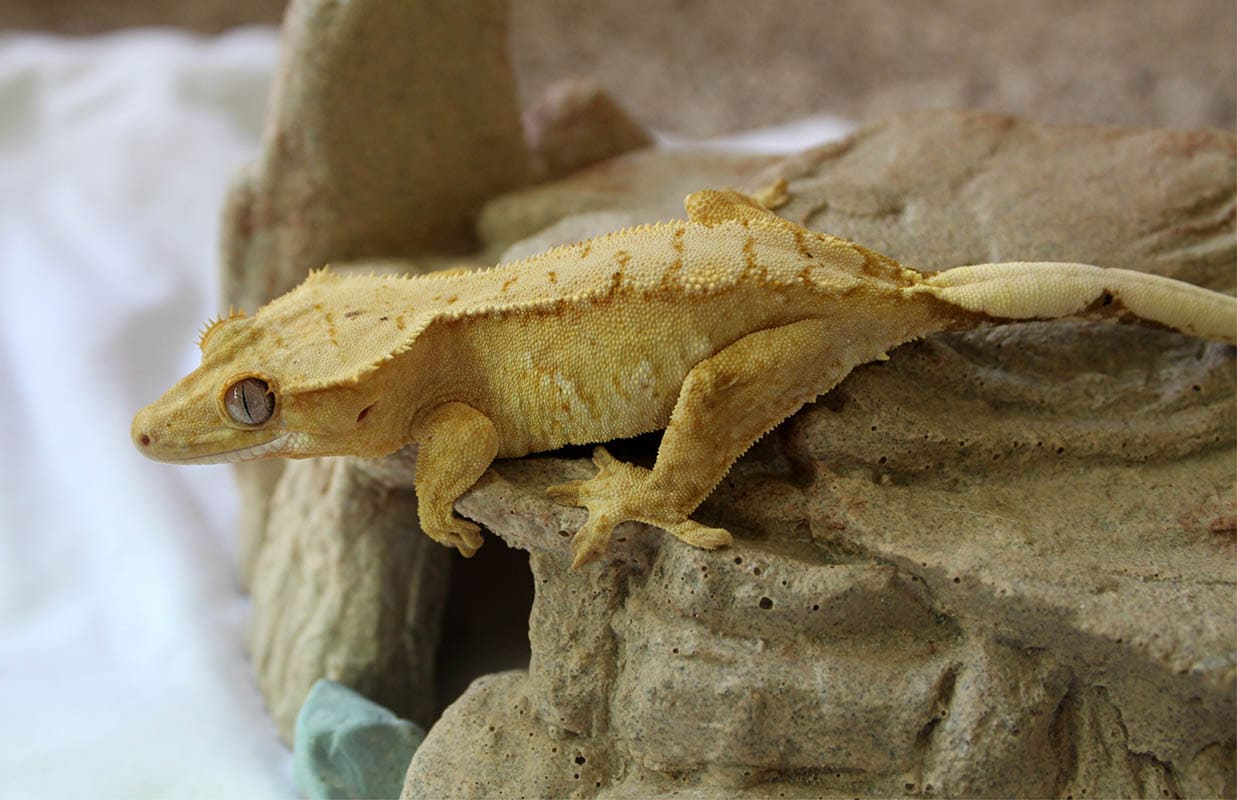
Crested Geckos are considered subtropical lizards, meaning they need a humid terrarium environment to survive. While they don’t need extremely high humidity levels, humidity still plays a crucial role in keeping these Geckos healthy.
For Crested Geckos, the ideal humidity level is around 40–80%. This enables the Geckos to stay hydrated and provides the necessary humidity for their skin to shed properly. When humidity levels fall below 40%, these reptiles can suffer from shedding problems and dehydration, while humidity levels above 60% can lead to respiratory issues.

Normal Crested Gecko Humidity Levels
As a general rule, Crested Geckos should be kept at between 40% and 60% humidity. These guidelines are specific to Crested Geckos. Lizards that are commonly mistaken for Crested Geckos, such as Leopard Geckos or African Fat-Tailed Geckos, do better at slightly higher humidity levels.
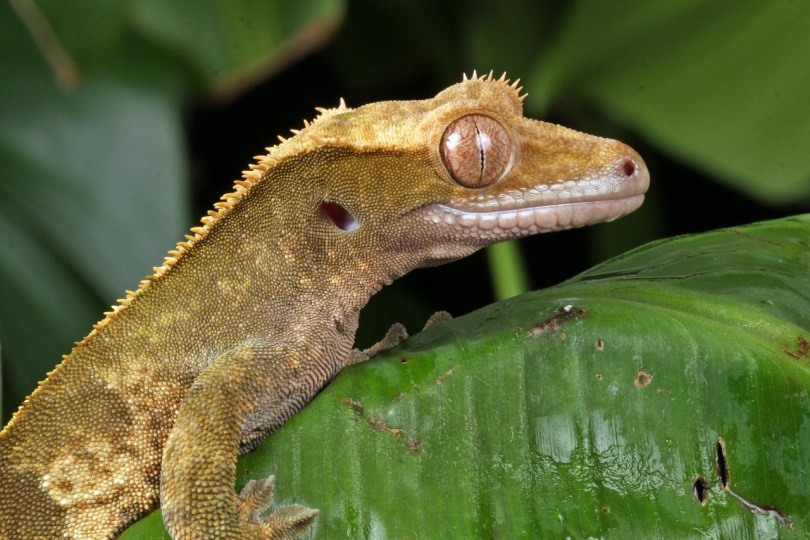
Normal Humidity Levels for Crested Geckos in Winter
The ideal humidity level for Crested Geckos during the winter months is around 50%. During this time of year, reptiles are less active and require less moisture. If humidity levels drop below 40%, Geckos may become dehydrated and are at risk for health problems.
Normal Humidity Levels for Crested Geckos in Spring
As the weather warms up in spring, many owners notice their Crested Geckos becoming more active. Along with this increase in activity, you may notice that your Gecko’s skin looks dry. The humidity level in your home often decreases as the temperature rises.
The ideal humidity for Crested Geckos at this time is 50–60%. If the humidity in your home is below this range, you can increase the terrarium humidity by misting it more often or using a humidifier.
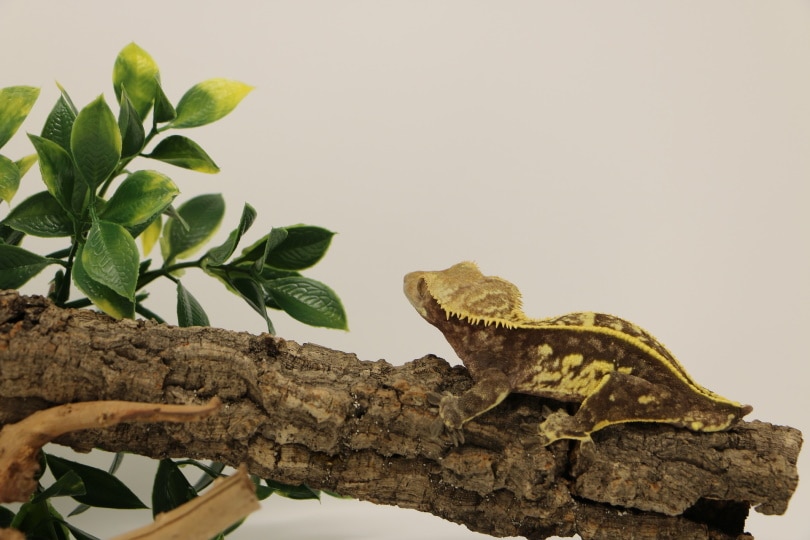
Normal Humidity Levels for Crested Geckos in Summer
The ideal humidity level for Crested Geckos during the summer months is between 50% and 60%. This range will enable your Gecko to stay healthy and comfortable without risking health problems. If you live in an area that experiences high humidity during the summer months, you may need to take extra steps to lower the humidity levels in your home, such as by using a dehumidifier. You should still make sure to provide your Gecko with plenty of water, so they stay hydrated.
Normal Humidity Levels for Crested Geckos in Fall
As temperatures cool down in fall, it’s important to ensure that your Crested Gecko’s habitat still has the right humidity level. If the air is too dry, your Gecko will suffer. If it’s too humid, they will develop skin and respiratory problems. Maintain your Crested Gecko’s terrarium humidity level between 40% and 60%.
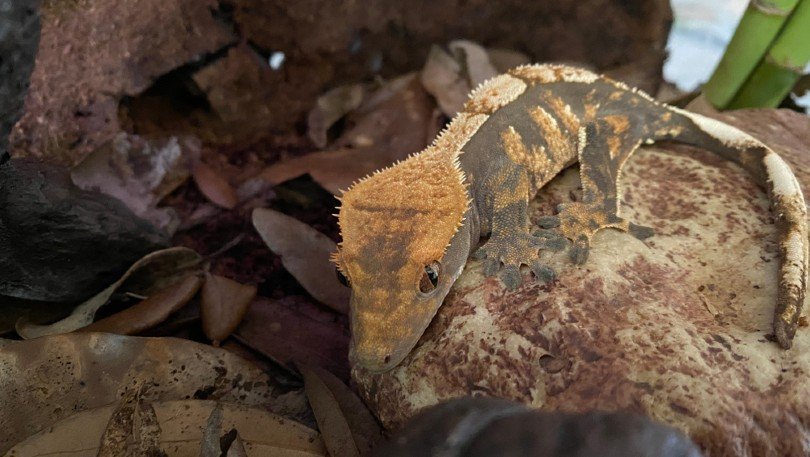
Why Are Humidity Levels Important for Crested Geckos?
Humidity levels are important for Crested Geckos because they help regulate the amount of water that these lizards lose through their skin. If the humidity level is too low, the Crested Gecko will lose too much water and become dehydrated. If the humidity level is too high, the Crested Gecko may suffer from respiratory problems.
How to Regulate Humidity Levels for Crested Geckos
The Crested Gecko is a type of lizard that originates from New Caledonia. They are a semi-arboreal species, meaning they spend part of their time in trees and bushes. Crested Geckos live in humid environments, with an average humidity level of 70% in the wild.
In captivity, they should live in a terrarium with a humidity level that is similar to their natural habitat. This can be achieved by doing the following.

Frequently Asked Questions (FAQs)
What is the ideal humidity level for Crested Geckos?
Crested Geckos thrive in humidity levels between 50% and 60%. Humidity levels below 40% or above 80% will lead to health problems.
How often should I mist my Crested Gecko?
If you are manually misting your Crested Gecko’s enclosure, you should mist it twice daily for at least 30 seconds each time. This can be done by hand or using an automated misting system.
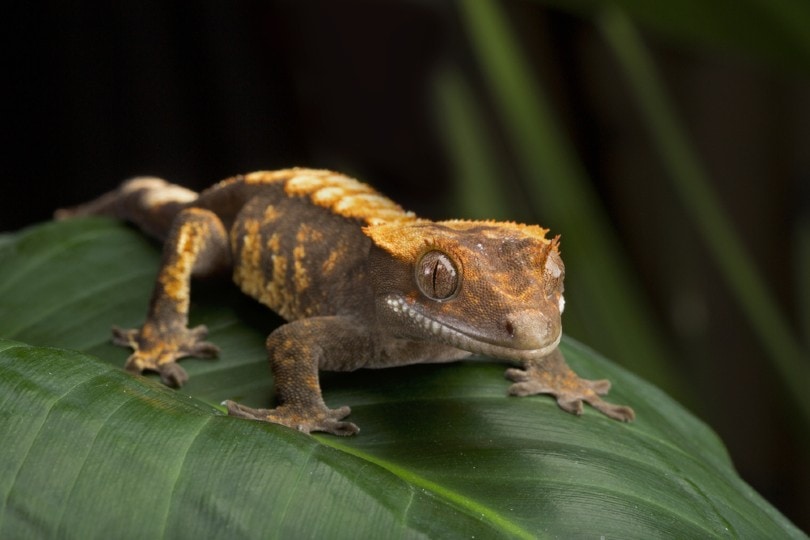
What is the ideal temperature range for Crested Geckos?
The ideal temperature range for Crested Geckos is between 72 and 78 degrees Fahrenheit (20–25 degrees Celsius) during the daytime and between 69 and 74 degrees Fahrenheit (20–23 degrees Celsius) overnight.
How do I measure humidity levels in my Gecko enclosure?
One major accessory that should be used when caring for Crested Geckos is a hygrometer. This device measures the humidity levels inside your terrarium.

Conclusion
It is best to keep the humidity levels for your Crested Gecko between 50% and 60%. Humidity levels that drop below 40% or above 80% can cause health problems for your pet. By carefully monitoring and maintaining your lizard’s humidity levels, you can prevent many issues from occurring.
Featured Image Credit: stickyclawgeckos, Shutterstock
